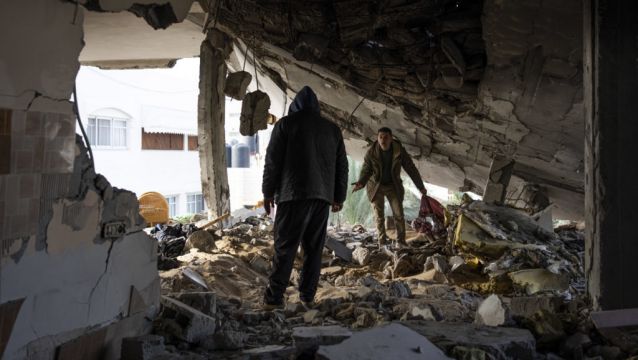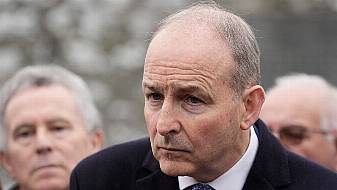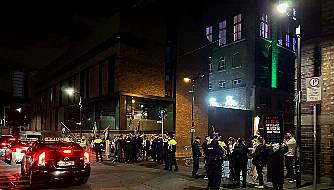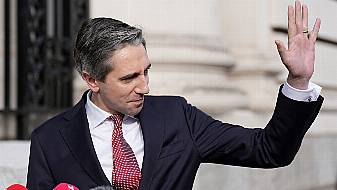Israeli air strikes have killed at least 44 Palestinians – including more than a dozen children – in the southern Gaza city of Rafah.
The strike came hours after Israel’s Prime Minister said he had asked the military to plan for the evacuation of hundreds of thousands of people there ahead of a ground invasion.
Benjamin Netanyahu did not provide details or a timeline, but the announcement triggered panic in the region as well as warnings from diplomats.
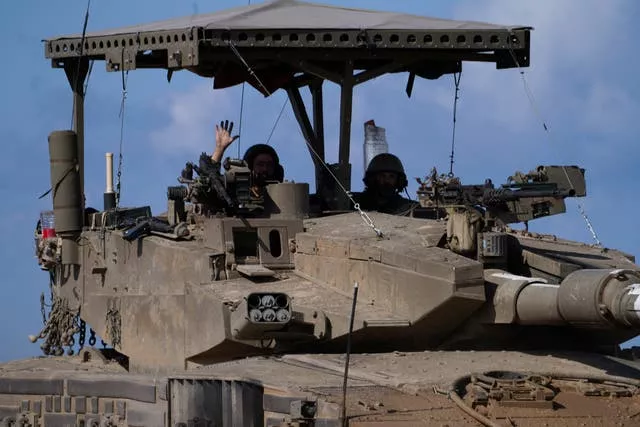
More than half of Gaza’s 2.3 million people are packed into Rafah, many after following Israeli evacuation orders that now cover two-thirds of the territory.
It is not clear where they could run to next.
Israel says that Rafah, which borders Egypt, is the last remaining stronghold for the Hamas militant group in Gaza after more than four months of war sparked by the October 7 Hamas attack.
Egyptian foreign minister Sameh Shoukry warned that any Israeli ground offensive on Rafah would have “disastrous consequences”, and asserted that Israel aims to eventually force the Palestinians out of their land.
Mr Shoukry also said Egypt was working to bridge the gap between the warring sides to achieve a permanent ceasefire and free the remaining hostages taken on October 7 in return for Palestinian prisoners in Israel. “The negotiations are complex,” he said.

There is increasing friction between Mr Netanyahu and the United States, whose officials have said an invasion of Rafah without a plan for the civilian population would lead to disaster.
Israel has carried out air strikes in Rafah almost daily, even after telling civilians in recent weeks to seek shelter there from the current ground combat in Khan Younis just to the north.
Overnight into Saturday, three air strikes on homes in the Rafah area killed 28 people, according to a health official as well as Associated Press journalists who saw the bodies arriving at hospitals.
Each strike killed multiple members of three families, including a total of 10 children, the youngest three months old.
Later on Saturday, an Israeli air strike on a home in Rafah killed at least 11 people, including three children, according to Ahmed al-Sawaf, head of Rafah municipality.

The dead were taken to Abu Youssef al-Najjar hospital, according to an AP journalist there. Two other strikes killed two policemen and three senior officers in the civil police, city officials said.
In Khan Younis, Israeli forces opened fire at Nasser Hospital, the area’s largest, killing at least two people and wounding five, according to the medical charity Doctors Without Borders.
Israeli tanks reached the hospital gates on Saturday morning, Ahmed Maghrabi, a physician at the hospital, said in a Facebook post.
Health ministry spokesman Ashraf al-Qidra said hospital staff are no longer able to move between buildings because of the intense fire. He said 300 medical personnel, 450 patients and 10,000 displaced people are sheltering there.
Today I met with Chancellor Scholz and spoke about several of our shared priorities, including our support for Ukraine in its defense against Russian aggression and ongoing developments in the Middle East.
I look forward to seeing him again soon at the NATO Summit in Washington. pic.twitter.com/T8h60csW00— President Biden (@POTUS) February 10, 2024
The Israeli military said troops were not currently operating inside the hospital and called the surrounding area “an active combat zone”.
Roughly 80 per cent of Gaza’s people have been displaced, and the territory has plunged into a humanitarian crisis with shortages of food and medical services.
The Gaza health ministry said the bodies of 117 people killed in Israeli air strikes were brought to hospitals over the past 24 hours, raising the overall death toll from the offensive to 28,064, mostly women and children. The ministry said more than 67,000 people have been wounded.
Israel declared war after several thousand Hamas militants burst across the border into southern Israel on October 7th, killing 1,300 people and taking 250 others hostage. Not all are still alive.
Israel holds Hamas responsible for civilian deaths because it fights from within civilian areas, but US officials have called for more surgical strikes. US President Joe Biden said this week Israel’s response is “over the top”.
PRESS RELESAE: the #ICJ will hold public hearings on the request for advisory opinion on the Legal Consequences arising from the Policies and Practices of Israel in the Occupied Palestinian Territory, including East Jerusalem, from 19 to 26 February 2024 https://t.co/aCshb2NaIh pic.twitter.com/Zce3yvwLUS
— CIJ_ICJ (@CIJ_ICJ) February 9, 2024
Mr Netanyahu’s office says it is impossible to eliminate Hamas while leaving four Hamas battalions in Rafah.
Egypt has warned that any movement of Palestinians into Egypt would threaten the four-decade-old peace treaty between Israel and Egypt. The Rafah border crossing, which is mostly closed, serves as the main entry point for humanitarian aid.
Rafah had a pre-war population of roughly 280,000, and the United Nations says it is now home to some 1.4 million additional people who fled fighting elsewhere.
German foreign minister Annalena Baerbock warned an Israeli offensive on Rafah would be a “humanitarian catastrophe in the making”, adding on X that “the people in Gaza cannot disappear into thin air”.
The Israeli offensive has caused widespread destruction, especially in northern Gaza, and hundreds of thousands of people no longer have homes.
